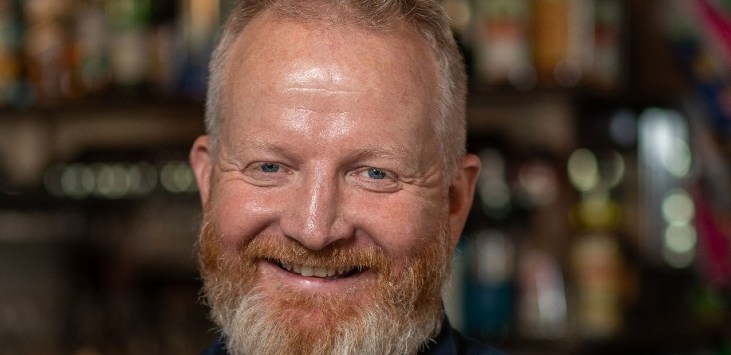
Stephen Hunt, founder of Hunt Hospitality. Source: supplied.
Stephen Hunt, the founder of private equity firm Hunt Hospitality, turned a lifetime in hospitality into a $100 million business.
Hunt Hospitality’s $100 million portfolio includes seven pubs — The Kent Hotel, The Imperial Hotel, The Sea Breeze Hotel, Finnian’s Tavern, Ocean View Hotel, Harrington Hotel and Shoeless Jack.
The business began back in 2015, but Hunt’s story could have been very different if he wasn’t able to correct the biggest mistake of his business career — and he had just 24 hours to do it.
The mistake
After turning a profit on a residential real estate sale, Hunt decided to use his knowledge of hospitality, and his gains from that deal, to establish his own private equity fund.
“Fundamentally, I’d been in pubs for a long time,” he says.
“In the last seven years I’ve had the most success, but it took me 23 years to get there.”
One of the most stressful days in those 23 years was the day Hunt was set to finalise a deal to buy his first pub. The pub, The Rutherford, was his local bar in the Hunter Valley, where he was living at the time.
The Rutherford would cost a little over $4.7 million. Hunt had raised $600,000 from early investors, had $400,000 to invest from his real estate deal, borrowed $2.7 million from a bank, and had the final million committed from another group of investors.
Thrilled, and with promises from the final group of investors the money would be transferred the following day, Hunt signed the contract to purchase The Rutherford.
But Hunt soon discovered a big problem. When the time came to collect the cash, the investors backed out.
He now had 24 hours to raise the final $1 million to complete the purchase, or be sued for $4 million.
The context
Hunt says he thinks he probably arrived at the problem through “a little bit of overconfidence”.
“It was my first attempt at establishing a fund. So I had a whole lot of people who’d said, yes we’re keen. But then when it came down to it, the cheque was in the mail, or I got no response,” he explains.
“So I was at the stage where I’d raised all of the funds, had finance approved, and then a lot of people, they kind of just vanished.”
Hunt chuckles retelling the story now, but says in the moment, it was a stressful time.
The solution
Trying to remain calm and work his way through the situation, Hunt didn’t burn any bridges. He reached out to those investors who had changed their mind, asking for referrals to anyone else who might be interested.
Luckily this resulted in a few new leads, so he fired off some investment memorandums and prepared for a long, stressful day of meetings.
“I exercised in the morning, burned off some of that extra energy, went to that first meeting. Gave them the sales pitch and thankfully they said, yup we’re on board,” Hunt says.
“Those guys are still investors today.”
Even after the first meeting went well and resulted in some progress towards that final $1 million, anxiety was still running high. So much so that Hunt went to the wrong address for his next meeting. Thankfully, he’d left himself plenty of time to correct that mistake.
He nailed the final two pitch meetings and secured the funds, just in the nick of time.
The lesson
The first piece of advice Hunt offers entrepreneurs is the most obvious one: always remember a deal isn’t done until there are signatures on the dotted line. He also adds that it would have been better to establish an option with the owner of the Rutherford, rather than signing the contract in good faith.
Seven years on, and with many more deals done, Hunt also has some reflections on what caused some of those investors to get cold feet in the first place.
“I was quite naive at the time when building the IM (investment memorandum),” he says.
“Rather than just sending the IM, I think what I should have done is have a discussion, and then say, look I’ll present the IM to you.
“Because I’m very authentic, when I pitch I’ll go through the good and the bad. That’s the right thing to do because if you express the bad things, you can counter what people think.
“Here’s a possible issue, but here’s my plan to address it.”
Hunt says entrepreneurs going into investment meetings should be ready to get stuck into the detail. That includes:
- Your history in business, past successes, and any past returns you’ve been able to generate for previous investors;
- A projected profit and loss and how you arrived at those figures; and
- Exit strategies, and how liquid the asset is.
“Having those fundamentals means you can cut to the chase,” Hunt says.
“This is what you’re going to get, this is what I’m paying myself, and if you want to get out, this is the process.”
Today, Hunt Hospitality is still growing, but Hunt notes that success hasn’t changed the way he does due diligence.
“It’s easier to buy an asset that could be unsuccessful,” he says.
“We don’t just buy any pub that comes up. We’re in the business of buying good pubs.”


COMMENTS
SmartCompany is committed to hosting lively discussions. Help us keep the conversation useful, interesting and welcoming. We aim to publish comments quickly in the interest of promoting robust conversation, but we’re a small team and we deploy filters to protect against legal risk. Occasionally your comment may be held up while it is being reviewed, but we’re working as fast as we can to keep the conversation rolling.
The SmartCompany comment section is members-only content. Please subscribe to leave a comment.
The SmartCompany comment section is members-only content. Please login to leave a comment.